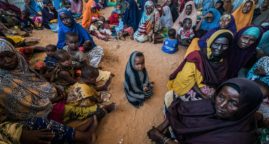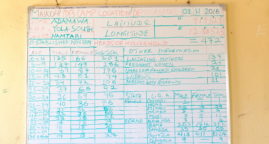Holy Family Hospital in Bethlehem: 4,700 babies born in 2018
Article published on the Sovereugn Order Website on 12/21/2018
Some 4,700 babies were born during 2018 in the Holy Family Hospital in Bethlehem, next to the Church of the Nativity and run by the Order of Malta since 1990. This is the only facility in the region capable of treating infants born before the 32nd week of gestation, thanks to its neonatal intensive care unit and its highly specialised staff. Nine percent of all the children born in the hospital – where Christians and Muslims work together in what is often called a “oasis of peace” – are in need of the treatment offered by its state-of-the-art incubators and equipment.
The Holy Family Hospital in Bethlehem also manages a mobile clinic that, five days a week, visits United Nations refugee camps and remote villages in the West Bank desert, often without running water and electricity. Twenty-five percent of the women assisted are refugees who otherwise have no access to medical services.
In 2017, more than a thousand women over childbearing age were treated by the mobile clinic. A vital activity for the female population in a region which for decades has been the centre of tensions.
Related Articles
UN relief wing appeals for record $22.5 billion in aid for 2018
12/01/2017. 136 million people face urgent needs because of protracted conflicts, natural disasters, epidemics and displacement.
The End of the World As We Know It
06/03/2019. After three decades of moving toward a single global market governed by the rules of the World Trade Organization, the international order has undergone a fundamental change.
Partnering with the private sector to innovate humanitarian response
09/26/2018. Private sector actors can play a major role given their unique expertise, capacities, resources, and networks.






